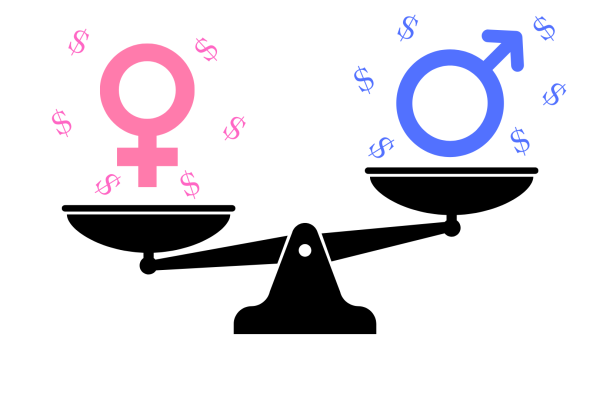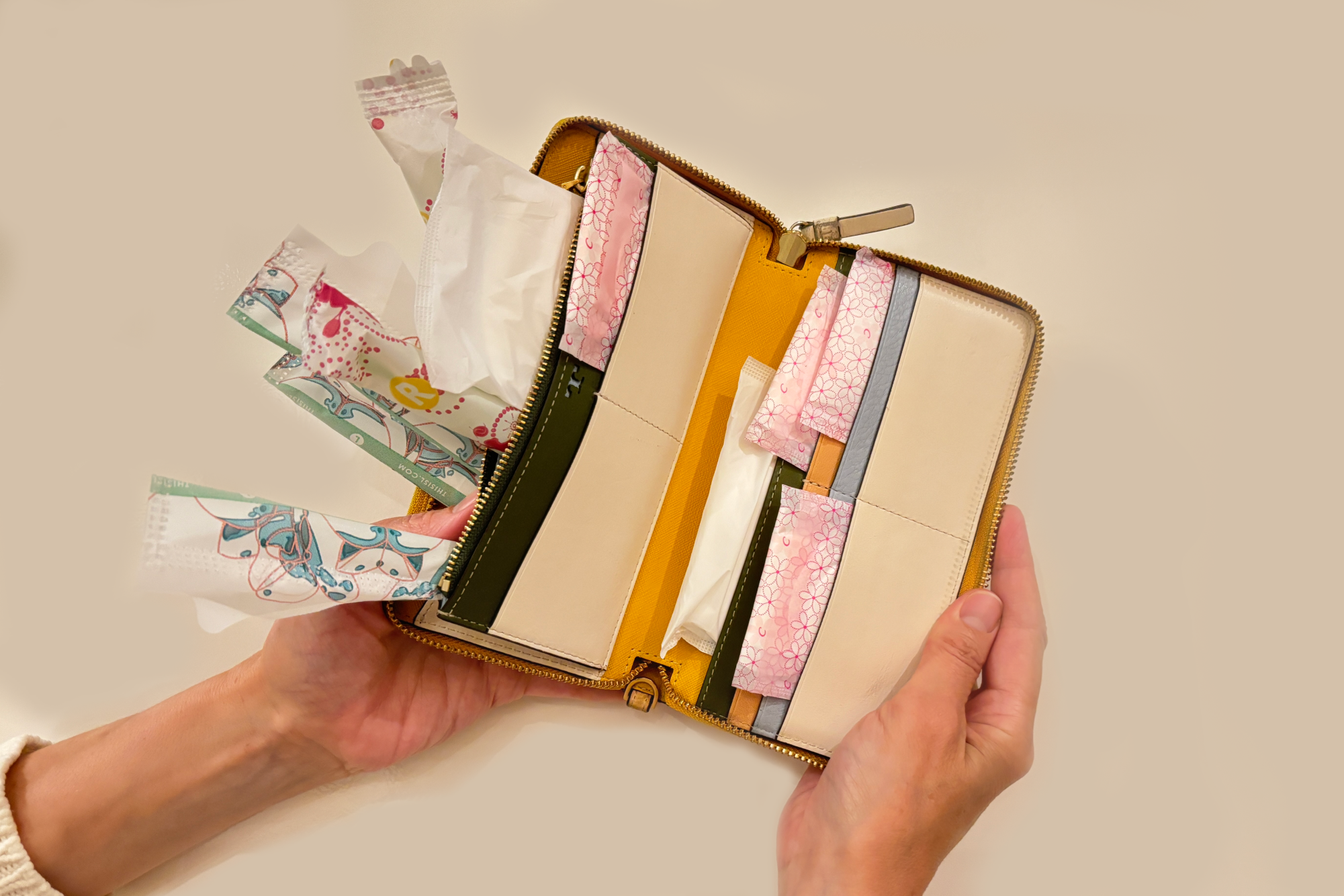If you identify as a woman or have female anatomy, you will pay an average of $188,000 more than men over the course of your lifetime, all thanks to The Pink Tax.
What is The Pink Tax?
The Pink Tax is a form of price discrimination that is often solely associated with menstrual products, but it also extends into many other areas. Rather than a tax in a literal sense, The Pink Tax is the up-charge of goods and services simply because they are marketed towards women. From menstrual and hygiene products to clothing and haircuts, the Pink Tax creeps into nearly every facet of a woman’s life.
According to Gitnux, on average, products marketed towards women are 7% more costly than those marketed towards men. A 2015 study showed that car insurance rates rose by an average of 20% for women whose husbands have died, calling it ‘the widow penalty.’ Additionally, on average, women’s haircuts cost 40% more than men’s, and women pay 15% more for a shirt to be dry-cleaned than men do.
“It’s harming people who don’t have enough money to spend on periods, or menstrual products, and have to prioritize other necessity items such as food and housing” — Ella Dorfman
Author and TEDx speaker Janine Rogan wrote the book “The Pink Tax: Dismantling a Financial System Designed to Keep Women Broke.” Her book was published May 2023 and aims to help women build wealth despite uncontrollable obstacles, such as The Pink Tax.
“The Pink Tax is about more than what we pay for the things we purchase daily, weekly, annually, and over a lifetime,” Rogan wrote in her book. “It is about our jobs, our investments and our families. The Pink Tax is the price we pay for being who we are in a world designed to keep women broke.”
Junior Ella Dorfman has a sexual education and vaginal health podcast on The Oracle called Sexplained. As an advocate for adequate sexual education, she works with the YHES4 Condoms campaign and the sexual education company Teen Source. Dorfman said The Pink Tax most prevalently affects people living under the poverty line or in low-income households.
“It’s harming people who don’t have enough money to spend on periods, or menstrual products, and have to prioritize other necessity items such as food and housing,” Dorfman said.
The Pink Tax Perpetuating Financial Inequality
Math and Computer Science Department Chair Maggie Cenan teaches a Financial Algebra class at Archer. The class helps students discover the math behind traditional finance topics. Cenan said the more money a women spends on necessities, the less money they have to invest, in turn making it more challenging for them to build wealth over time. Other factors like the gender wage gap also play into this challenge.
“Generally speaking, you should just spend about 50% on your needs,” Cenan said. “And given that women make less than men, the amount of money we have to spend on our needs will probably be over that.”
Cenan also expressed the importance of investing early. Similarly, Rogan wrote about the significance of gaining financial control by being involved in their finances early.
“The only way women can truly function as equals to the men in our society is if they are equal financially,” Rogan wrote. “Having the same financial power and leveraging it will allow us to take more leadership positions globally and change policy to aid in creating equity around the world.”
Cenan said when The Pink Tax interferes, it is harder to have money to invest and save, which inhibits women’s ability to build wealth.

“That’s really where The Pink Tax comes in, and how it hurts the people that don’t have the money,” Cenan said. “They’re spending too much money on the products just because they’re costing more, so they’re unable to then invest it.”
Dorfman said it is not fair for women to have to make decisions between different necessities. With the higher price for goods and services for women, it can make it hard to choose between hygiene products and clothing, for example.
“It makes women have to choose between their internal health and supporting their families,” Dorfman said.
Additionally, the U.S. Federal government does not any have regulations to restrict The Pink Tax, but a handful of states do have these regulations, California being one of them. Assembly Bill No. 1287 “[prohibits] a person, firm, partnership, company, corporation, or business from charging a different price for any 2 goods that are substantially similar, as defined, if those goods are priced differently based on the gender of the individuals for whom the goods are marketed and intended.”
Awareness Around The Pink Tax and Combative Efforts
According to Gitnux, 56% percent of women are not aware of The Pink Tax. Women who are the most affected by the Pink Tax are typically unaware of the financial damage it causes them.
Dorfman said discussing and de-stigmatizing vaginal health are integral in helping to fight The Pink Tax, which she strives to do through her podcast.
“Abolishing The Pink Tax means doing away with any laws, rules, societal expectations and policies that force women into untenable situations” — Janine Rogan
“By creating more awareness, vaginas become more normalized,” Dorfman said. “Therefore, we can see … menstrual products are something that are necessities rather than desirable items.”
Cenan said it is especially important for women to be knowledgeable about financial topics. She said part of the reason she went into teaching a Financial Algebra class is because women, specifically, need financial literacy education.
“We can’t necessarily control what’s being marketed or what the price is, but we can control what we spend our money on,” Cenan said.
Rogan’s book also addresses how putting an end to The Pink Tax is the way for women to truly be equal to their male counterparts. Without financial equity, men and women and their advantages are not proportionate.
“Abolishing The Pink Tax means doing away with any laws, rules, societal expectations, and policies that force women into untenable situations,” Rogan wrote.
Dorfman said she believes gender inequality creeps into our systems, especially in the healthcare field. She said these inequalities impact the financial burden placed on women through The Pink Tax.
“I think that it ties back to internal sexism and the sexism that exists in our systems,” Dorfman said.












Caroline Fu • May 23, 2024 at 5:36 pm
Amazing article Phoebe! This is so interesting and well written, great job!!